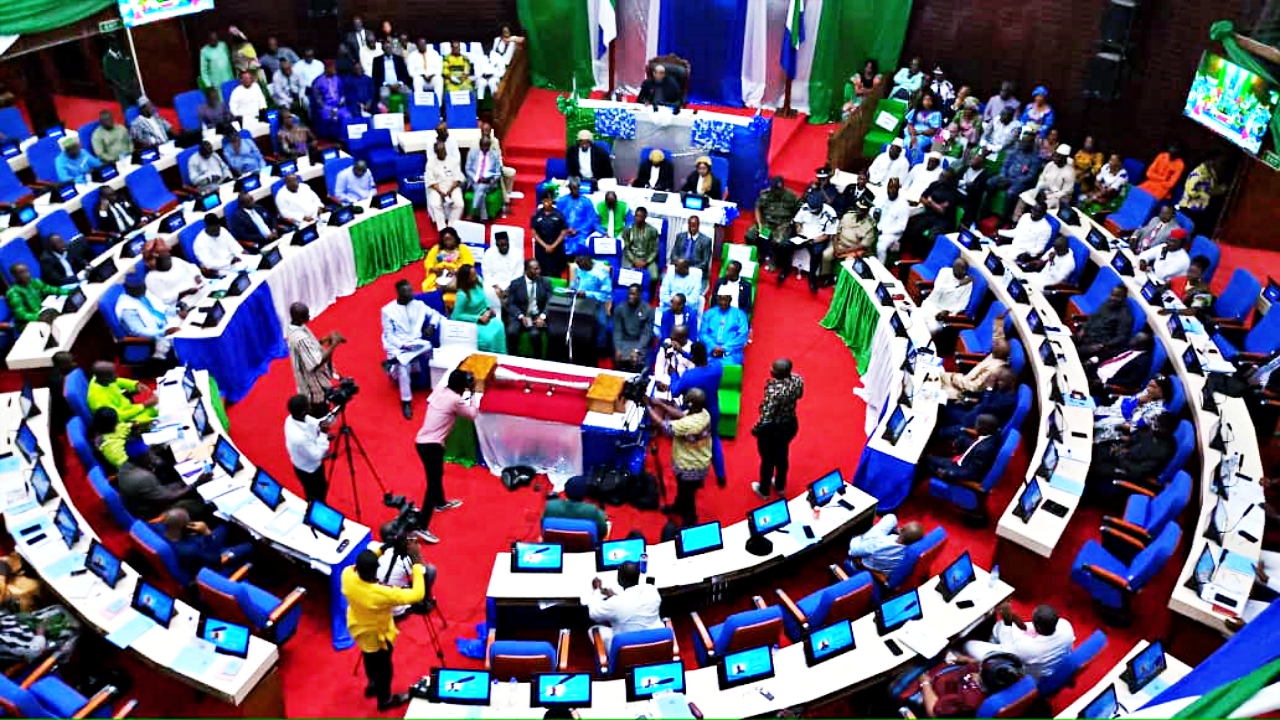By Alusine Fullah
Article 75 of the 1991 Constitution stipulates that to qualify to be an MP, a person must meet the following qualifications: be a citizen of Sierra Leone; be 21 years of age or older; be a registered voter; be able to speak and read the English language. If a person meets these criteria, they must then win the majority of votes in an election!
Parliament is the supreme legislative authority in Sierra Leone, as defined by Part V of the 1991 Constitution. Bills become law once they are enacted by Parliament and signed by the President. The constitution determines the law-making role of parliament, and the standing orders lay out the internal process within parliament.
Parliamentarians are responsible for enacting laws to insure that the country’s democracy operates openly and freely. Laws are meant to address the country’s problems and should provide for the best possible quality of life for the people. The law making role of MPs includes reviewing and passing the country’s annual budget. Funds allocated in the budget directly affect citizens through the government policies and programs adopted.
To exercise their foregoing legislative powers, members of parliament can: · introduce legislation (a private member bill) to address specific issues; · review, debate, and amend government bills presented by the Executive branch and introduced for debate by the majority caucus.
Can an MP lose his or her seat in Parliament after being elected? Yes. The Constitution of Sierra Leone (Article 77) describes reasons for which an MP can be disqualified. For example, if an MP is convicted and sentenced for an offence which involves fraud or dishonesty, if an MP is absent from too many sittings of Parliament, or if an MP changes his or her political party affiliation, she or he could be asked to vacate their seat.
As noted in Chapter VI of Sierra Leone’s Constitution, “all Members of Parliament shall maintain the dignity and image of Parliament both during the sittings in Parliament as well as in their acts and activities outside Parliament (Article 97(a)).” Once sworn in as a member of parliament, MPs receive the title, “Honourable.” and become responsible for conducting themselves in a manner that befits the title. The public demands a higher standard of conduct of those individuals upon whom they confer such an honour. Every member shares responsibility for the way parliament and its members are viewed by the public.
Since the inception Sierra Leone Parliament, committees have been creating some effects (positive or negative effects). Some Sierra Leoneans have many a time describe them (I mean parliamentary committees) as lame dog or watch dog. But, what are parliamentary committees? Parliamentary committees are subsets of the plenary and allow groups of legislators to review policy matters and proposed bills, or conduct oversight more closely in a smaller setting than would be possible by the entire chamber. Article 93 of the 1991 Constitution underscores the importance of committees of parliament, and Standing Orders number 70-76 further define parliamentary committees and how they work. Some committees are temporary or ad hoc, while others are permanent. Ad hoc committees are formed to review particular bills and are disbanded when their scope of work is completed. Permanent standing committees’ jurisdictions mirror the structure of cabinet ministries, and are involved in both legislation and oversight. Some permanent committees focus on oversight (Public Accounts), and others are responsible for rules, management, and housekeeping matters of Parliament. The membership of each committee is appointed at the beginning of the parliamentary session and is mandated to carry out specific duties on thematic issues, such as finance, defence or security, human rights, or foreign affairs.
For the past decades, many constituency people have solely and wholly bank on the help of their MPs. Is an MP responsible for the development of his/her constituency? For many, because of ignorance, they think MPs have the constitutional right to do so. In their nukes and crannies, many Sierra Leoneans have the belief that it is mandatory for an MP to develop his/ her community. In some cases the people should not be blamed. This is because, time for elections, contesting MPs normally give huge and to some extent unfulfilled promises their communities. Some promises, even the ruling president cannot fulfil them. MPs make laws and can influence policies that will take developmental programs and initiatives to their constituencies, in addition to projects of national interest. An MP is not directly responsible for undertaking development programs in his/her constituency. However, MPs can facilitate, lobby for, and support development initiatives in their constituencies.
To make this article meatier, I engage with an OLD parliamentarian on the phone (during the reign of late President Kabbah). I put it straight to him what will make a parliamentarian successful? He narrated this to me: “Media engagement is very key for the success of MPs. The media are the link between the public and their representatives in government, and are thus an integral part of any democracy. Journalists have a responsibility to keep the public informed. MPs should establish regular contacts with journalists to shed more light on the workings of the parliament and to keep the public informed of their position on issues. MPs should monitor developments in the country that affect their constituency, and benefit immensely from staying in touch with constituents. Not all constituents will agree with their MPs on every issue and all the time, and you will never be able to please everyone. However, most constituents will respect MPs for thinking through the issues and consulting them before arriving at a decision.”
Following recent elections, women lawmakers now account for 30.4% of the elected seats in the Sierra Leone Parliament, up from 14.5% in the previous election. The surge in women MPs is largely thanks to the Gender Equality and Women’s Empowerment Act, signed into law by President Julius Maada Bio a few months ago, which sets a 30% quota of women in parliament, the cabinet and other institutions.













